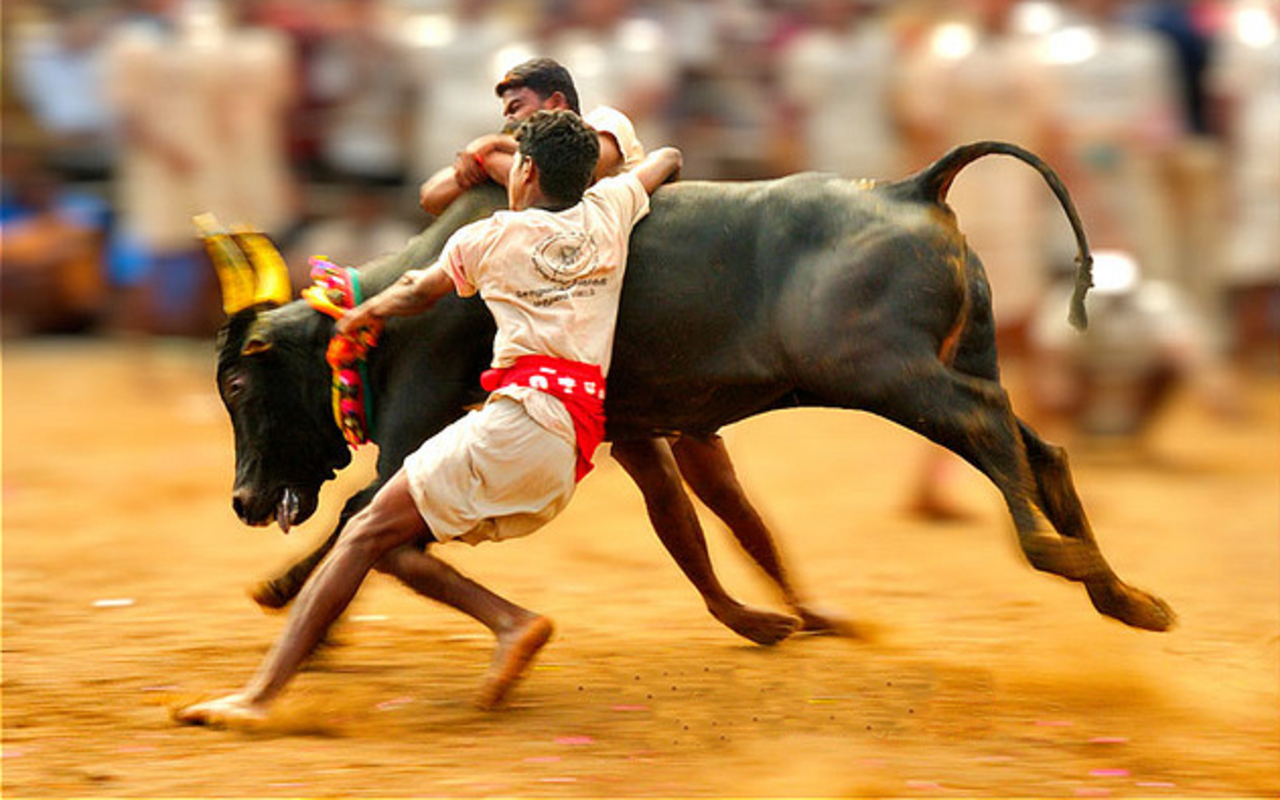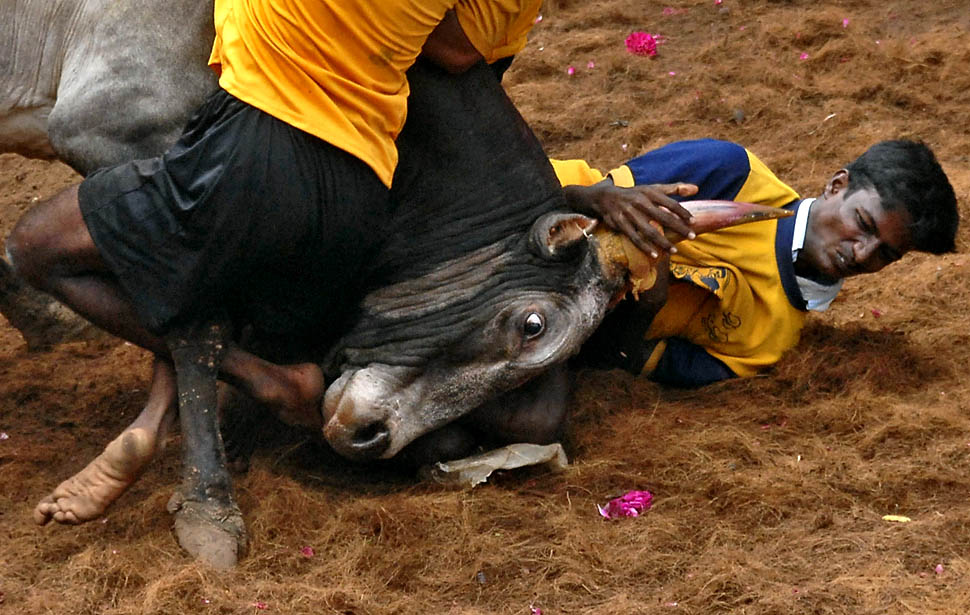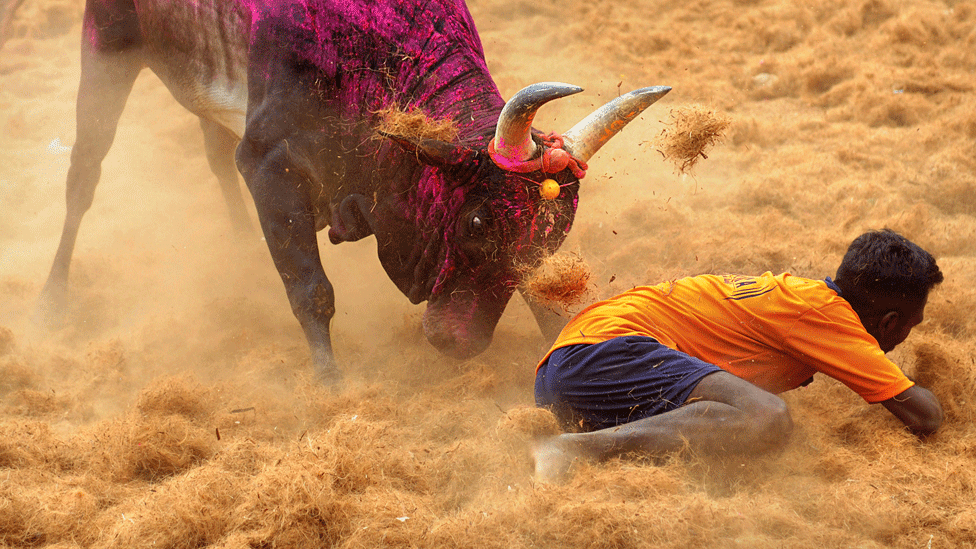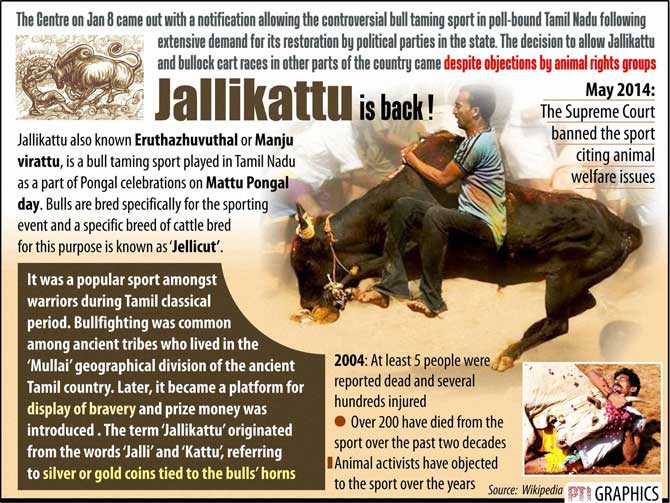Celebrate Holi in India 2026: Exclusive Festival Tour Packages for Foreign Travelers
Every spring, as the chill of winter fades and the warmth of the sun fills the air, India transforms into a living canvas of colors,...

For centuries Tamil Nadu has been home to one of the oldest cultural showcases- the Jallikattu. You might wonder what is so special about bull story Jallikattu, that we had to write an article about it. Well this cultural celebration has been a part & parcel of Tamil Nadu’s heritage for over 2,000 years and still continues to be so. The unique twist to this celebration are the bulls that kickstart, more literally charge onto a bunch of sturdy men who then try to grab the bull’s hump and hold on for as long as possible. The ensuing crowd cheers amidst rising dust and heightened excitement fills up the air. For the people of Tamil Nadu, Jallikattu is not just any festival, it’s their heritage, pride and identity wrapped into one.
Jallikattu can be arguably considered one of the oldest traditions in India that persevered through 2000 years. As for its name, Jalli means coins and Kattu means tie in Tamil, which interpretably means tying a pouch of coins to a bull’s horns. The men participating in Jallikattu would then attempt to grab the pouch in turn proving their bravery & strength to the spectators who cheer them on as the festival comes to an end. The tradition started with the Ayar community, cattle herders who treated their bulls like family.

A festival that stands apart, the uniqueness of Jallikattu is another reason for its popularity in regions apart from Tamil Nadu. Jallikattu is profoundly connected to another celebration, Mattu Pongal, a festival that is dedicated to honoring cattle. The bulls that participate in Jallikattu are not ordinary farm animals, rather they are raised with special care, trained for years and treated with immense respect. The best bulls become legends who are revered for their indomitable spirit and strength. They are never harmed or killed, instead they are chosen for breeding, in turn helping preserve Tamil Nadu’s endemic and unique cattle breeds.

Jallikattu bulls are not like regular farm bulls. Farmers give them the best food, daily exercise, and even swimming practice to build their stamina. From a young age, they are taken to smaller events to get used to the crowd and noise. Over time, they develop the strength and agility needed to compete in Jallikattu. Special precautions are taken to ensure that the Jallikattu bulls are given enough time and love to reach their zenith before competing. Afterwards, these bulls are retired and get to spend the rest of their lives in peace and harmony.
Jallikattu is played in three different styles:
Each type has its own thrill, and every village has its own way of celebrating.

When a Jallikattu bull stomps its hooves and enters the arena, the atmosphere transforms with electrifying shouts ringing around. The goal of the men entering the field is simple—hold onto the bull’s hump as long as possible. Some bulls also have flags tied to their horns, and removing them is an extra challenge. Those who succeed earn deep respect, and the best bulls are chosen for breeding. It’s not just about winning—it’s about proving one’s courage and earning honor.

In 2014, the Supreme Court banned Jallikattu after concerns from animal rights groups like PETA. They argued that bulls were being mistreated. But for the people of Tamil Nadu, this was an attack on their culture. Huge protests erupted across the state, with people demanding their right to practice an ancient tradition. In 2016, the government lifted the ban with new rules to ensure the safety of both bulls and participants.

Jallikattu is not just about tradition—it has real benefits too:
While Jallikattu is loved by many, some concerns remain. Critics say bulls are sometimes scared before the event and that injuries to participants and spectators can be serious. However, new regulations have helped reduce risks and prevent mistreatment. With proper guidelines, Jallikattu can continue as a safe and respected tradition.
Jallikattu is not just about taming bulls. It’s about tradition, bravery, and the bond between humans and animals. While debates continue, for the people of Tamil Nadu, it is a tradition that deserves protection. It has survived for over two thousand years, and with the love and passion of its people, it will continue for generations to come.
Every spring, as the chill of winter fades and the warmth of the sun fills the air, India transforms into a living canvas of colors,...
Maha Shivaratri, known as the Great Night of Shiva, holds immense spiritual significance for millions of devotees worldwide. In 2026, this auspicious festival promises another...
A celebration of Indian dance forms, the Khajuraho dance festival is a week-long extravaganza highly anticipated by dance lovers all over the world. The festival...
You are one step closer to having the best journey of your lifetime! Talk to us, write to us all that you have envisioned for your India trip, and one of our travel experts will connect with you on priority. To help you explicitly we have WhatsApp and Email addresses!